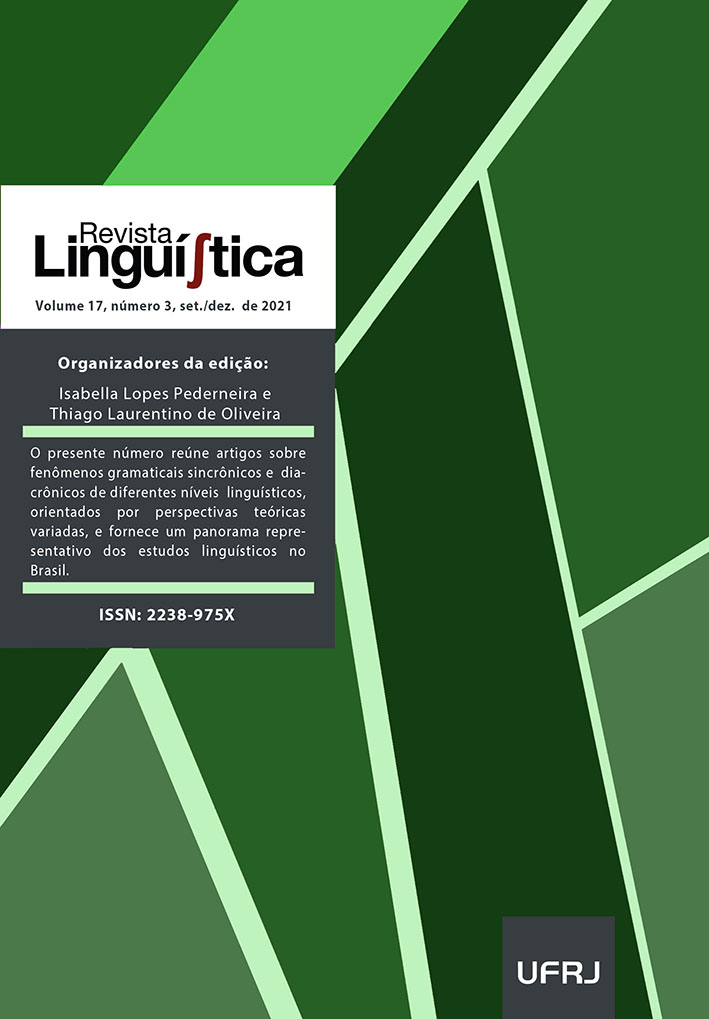Passive-se, impersonal-se, and indefinite null subjects: a minimalist approach to the loss and the emergence of constructions in a language’s grammar
DOI:
https://doi.org/10.31513/linguistica.2021.v17n3a49509Keywords:
passive-se, impersonal-se, null subjects, brazilian portuguese, european portugueseAbstract
Contrary to what has been proposed in most generative approaches which see the loss of passive-se constructions in Brazilian Portuguese as an outcome of the impoverishment of the verbal morphology, in this article, we show empirical evidence that the loss of constructions with the so-called passive-se in the history of Brazilian Portuguese is crucially associated with the loss of a higher functional projection than T, namely: FP. This was the position in which the transitive verb of these constructions established agreement with the internal argument in European Portuguese (RAPOSO; URIAGEREKA, 1996). We link this finding to the changes in Brazilian Portuguese grammar triggered by the loss of FP predicted by Pires (2006). At the same time, we argue that the emergence of constructions with indefinite null subjects in the 3rd person singular, as in “Vende casas” (‘(One) sells houses)’), is also not associated with the loss of agreement in transitive verbs and the disuse of the clitic se (passive or impersonal), as it has been tentatively argued in the literature, but to the loss of the D-feature of T, which allowed Brazilian Portuguese – as well as other partial null-subject languages – to license indefinite null-subjects in the 3rd person singular.Downloads
Published
Issue
Section
License
Authors who publish in the Revista Linguí∫tica agree with the following terms:
The authors maintain their rights, ceding to the journal the right to first publication of the article, simultaneously submitted to a Creative Commons license permitting the sharing with third-parties of published content as long as it mentions the author and its first publication in the Revista Linguí∫tica.
Authors may enter into additional agreements for the non-exclusive distribution of their published work (for example, posting in online institutional or non-profit repositories, or book chapters) so long as they acknowledge its initial publication in the Revista Linguí∫tica.

The journal Revista Linguí∫tica is published by the Post-Graduate program in Linguistics of UFRJ and employs a Creative Commons - Attribution-NonCommercial 4.0 International (CC-BY-NC).









